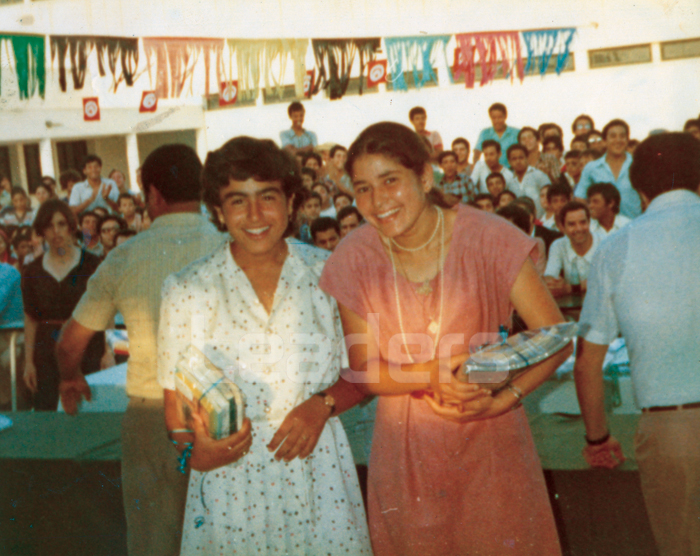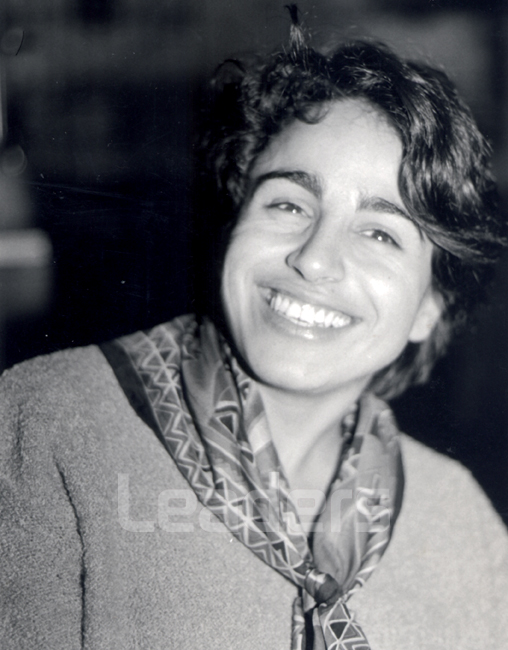
Ahlem Belhadj President of the ATFD: The equity of gender relations will change social relations
Professor of medicine, head of the department of child psychiatry, Ahlem Belhadj, 47 years, president of the Tunisian Association of Democratic Women (ATFD), aligns no less than 30 years of struggle in the left and for the cause of women. With the revolution, she who believed that everything was going to make her fight succeed, sees herself having to start again and more beautiful. "I know that we can’t ask for immediate solutions, she says, but we are waiting for strong signals reassuring us that we are on the right path.
These signals, Ahlem seeks to find them through a fundamental debate that decides on the essential questions so that the ambitions of departure do not turn into regression with regard to the achievements. In this quest for the true exercise of an egalitarian citizenship, she wonders about the type of relations between men and women and the social justice that should not leave women in precariousness. The president of the ATFD is horrified by what is proposed today to the Tunisian woman in the aftermath of the revolution: polygamy, excision, abandonment of adoption, niqab, as upper limits, even if it means negotiating lower levels of confinement and removal of rights and freedoms later on. She remains confident, however, that society does not accept this. "The fight, she says, may be without equal weapons, but what is comforting is the vigilance and deep values that animate Tunisians.

Ahlem Belhadj calls on Ennahdha to keep its two major electoral promises, namely a civil state and a one-year mandate to finalize the drafting of the new Constitution and the organization of elections. This is a call that she shares with the activists of the ATFD, but also with many other political families and components of civil society. When she started, 30 years ago, at the University, her fight for the cause of women, her comrades, even those of the extreme left, accused her of doing the work of a petty bourgeois who introduces deviation and division within the people’s cause, but today she is confirmed more than ever in the rightness of her commitment.
An athlete of long endurance
In her native town of Korba, in the heart of Cap Bon, she had led, until the age of 17, a peaceful and pleasant life, bathing with her 4 other brothers and sister in family happiness. Her father, a respected teacher, was the mayor for 20 years. Studious studies, sport performances in athletics with the team of Korba then the Stade Nabeulien, before wearing the jersey of the national team in long jump and speed (100 m). This earned him many titles and medals, in addition to school and high school prizes. When she arrived at the Faculty of Medicine of Tunis in 1982, she found the university in full turmoil and could not resist to get involved.

Her first contact with the militant action is taken one March 8, 1983, during the celebration of the world day of the Woman, at the sides of Saida Rached Aoun, before joining actively the ranks of the left claiming the holding of the 18th extraordinary congress of the UGET (after that of Korba, in 1972).
Here she is within a revolutionary Marxist group including Sadri Khiari, Olfa Lamloum, Afifa Souissi and Jalel Ben Brik Zoghlami (Taoufik’s brother), who will become her husband.
Living in the midst of anguish and getting out of it
Thrown at full speed and in depth in the action, she will not however turn away from her studies, however demanding, and will not miss any year, admitted certainly often to the session of September. Her course of study was a straight line: internship, residency and assistantship, then, as a consecration, the agrégation. By choosing psychiatry, and especially child psychiatry, she was in fact looking for an opening to the human sciences, to take an interest in the social field, to understand people and thus to be in line with her struggle.

Her hospital and university career was not without obstacles because of her militancy and that of her husband. How many times did she suffer injustice, downgrading and withdrawal of an open position? But nothing could diminish her ardor.
When she got married in 1993, Jalel was under a search warrant and was living in semi-clandestinity. As a lawyer, he was not allowed to join the bar, despite his CAPA, and had to leave for France to pursue a post-graduate degree that would give him access to the legal profession by right. With two young children to support, she not only had to take care of her small family, but also to continue her struggle, both professionally and militantly.
On all fronts
Already, Ahlem Belhadj was at the forefront, a militant within the LTDH and the ATFD, founder of the CNLT and Raid Attac, very active in the union of university hospital doctors, deploying herself on all fronts. The year 2004 was particularly hard for her, Jalel was back from France, but deprived of practicing, the position open to the competition of aggregation which was rightfully hers was withdrawn and health problems began to threaten her, then came the arrest of her husband and his sentence to 8 months in prison. In this great and multiple sorrow which plunged her into a deep anguish, she found comfort in the active solidarity of her comrades in the struggle, without which she could not have resisted for long.
Member of the executive of the ATFD in 1992, under the presidency of Hédia Jerad, she was elected president for the first time in 2004, for two years, and here she is again this year.

Why settle for ATFD and not join a party? Because she firmly believes in the indispensable political independence of the Association and in the primacy of the women’s cause.
“But, also, she adds, because I did not find in the socio-economic programs of the parties in the running what satisfies my expectations and meets my convictions. The choice being very limited, I decided to invest in associative work, taking the decision not to be visible in politics. Ahlem Belhadj remains convinced, however, that”the [coming] step will be political,“she says.”After the parenthesis of the presidency of the ATFD, I am part of the radical left that asks for socio-economic solutions and makes women’s issues a fundamental concern. The project of society passes by the establishment of a model of society equitable as for the relations between men and women, what will change the rest of the social relations ".
Leaders
 Europe Solidaire Sans Frontières
Europe Solidaire Sans Frontières


 Twitter
Twitter Facebook
Facebook